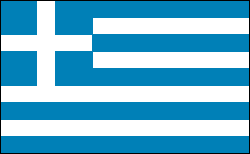2010 Year in Review - Iran

Major World News Stories of 2010
IranUndaunted by Sanctions, Iran Continues to Pursue Nuclear ProgramFor much of 2010, Iran continued to test the patience of the West and the UN by brazenly pursuing its nuclear program, making clear that is has no plans to halt uranium enrichment despite tough sanctions imposed by the UN, the U.S., and the European Union. In May, as the U.S. and other members of the Security Council were negotiating the language and terms of a fourth round sanctions against Iran for continuing to enrich uranium and refusing to open its facilities to weapons inspectors, Iran agreed to send 2,640 pounds of enriched uranium to Turkey in exchange for uranium enriched to 20%âa deal strikingly similar to the one Iran reneged on in October 2009. Turkey and Brazil brokered the agreement. Both countries were criticized for interfering with the sanctions process and accused of attempting to increase their presence on the world stage. Despite the deal, Iran said it would continue to enrich uranium, and a report by International Atomic Energy Agency indicated that Iran had in fact produced enough fuel that with additional processing could make two nuclear weapons. Iran has steadfastly insisted that the fuel is for peaceful purposes. The report helped to further justify sanctions, which were passed by the UN Security Council in June. The sanctions require that countries inspect ships and planes leaving or entering Iran if they suspect banned cargo is being transported, ban Iran from investing in other countries' nuclear programs, and limit financial transactions of the Islamic Revolutionary Guards Corps. The U.S. Congress and the EU followed with even tougher unilateral sanctions aimed at foreign companies that conduct business with the Revolutionary Guards or sell gas to Iran. Leaked Cables Show Arab Countries Wary of IranDiplomatic cables released in November by WikiLeaks, an organization that disseminates secret informationâor at least information not readily available to the publicâin the interest of transparency, revealed that many Arab leaders fear Iran's growing nuclear power and have privately persuaded the United States to intervene. Indeed, a cable from King Abdullah of Saudi Arabia Washington urged the U.S. to "cut off the head of the snake," referring to Iran. The cables also indicated for the first time that the U.S. believes Iran has acquired missiles from North Korea that could strike parts of Western Europe. |
- More from 2010 News of the World









